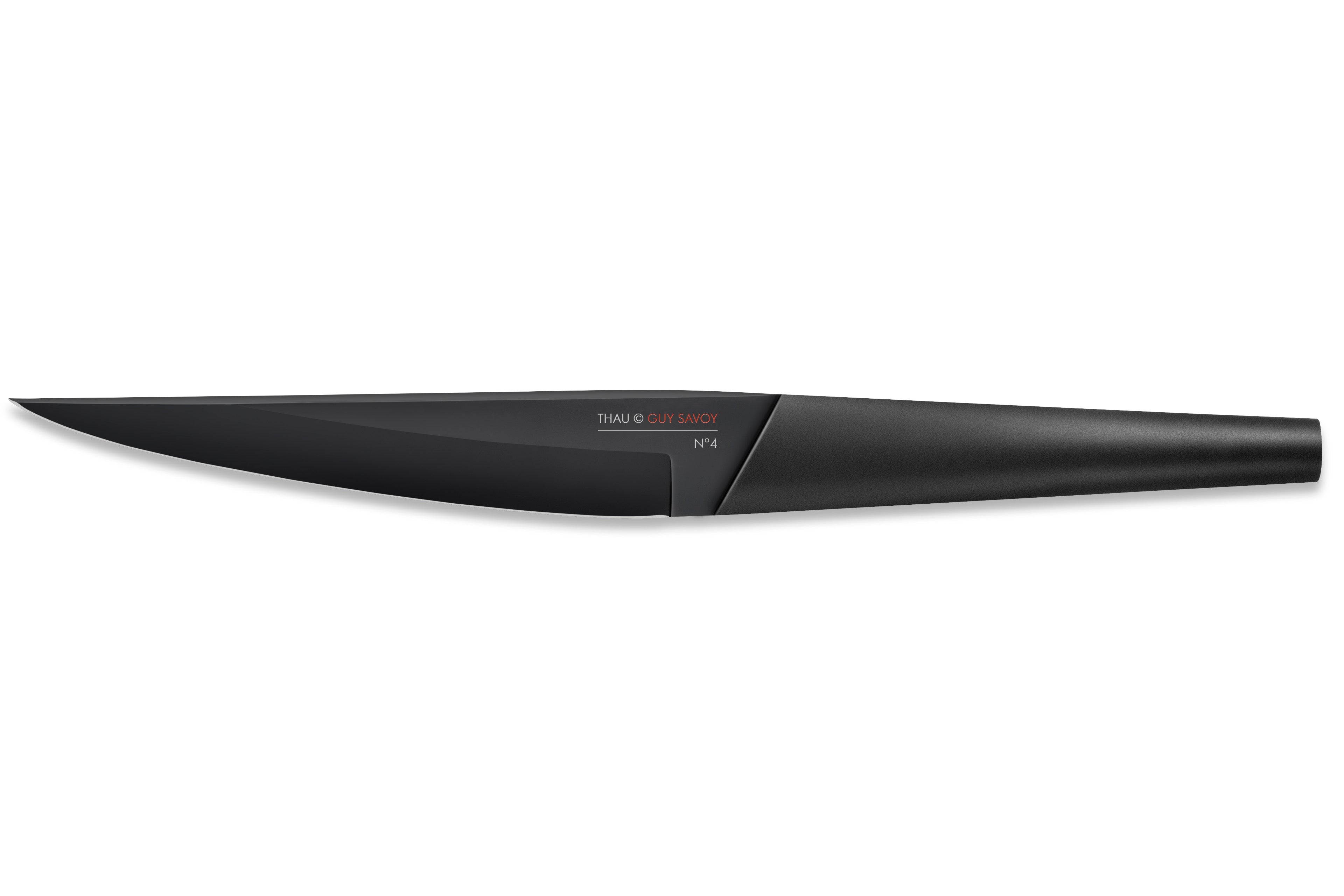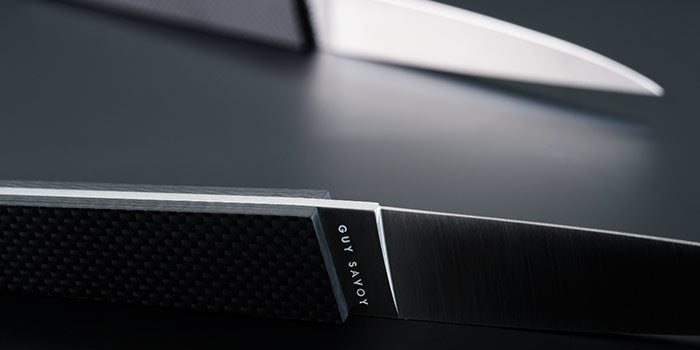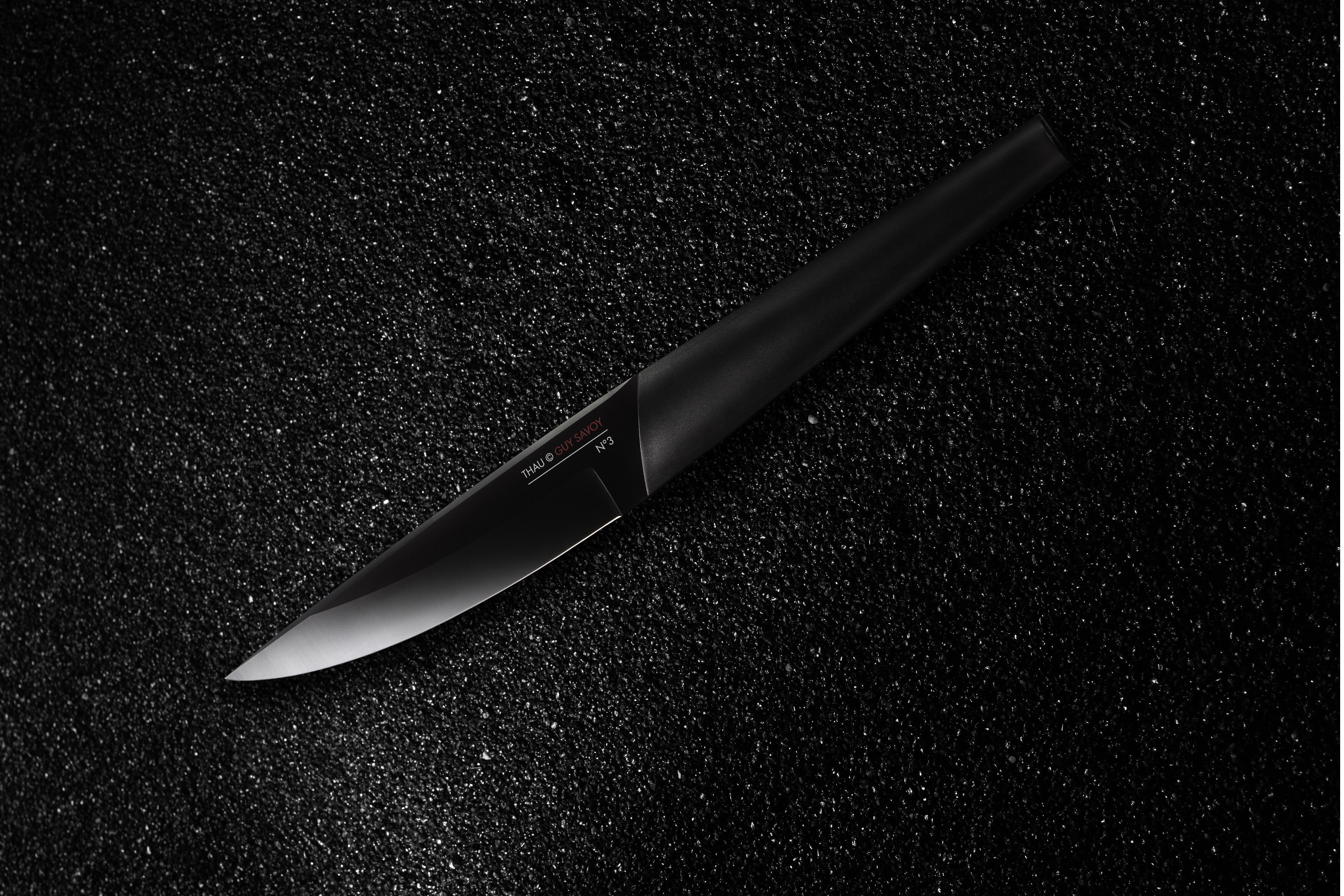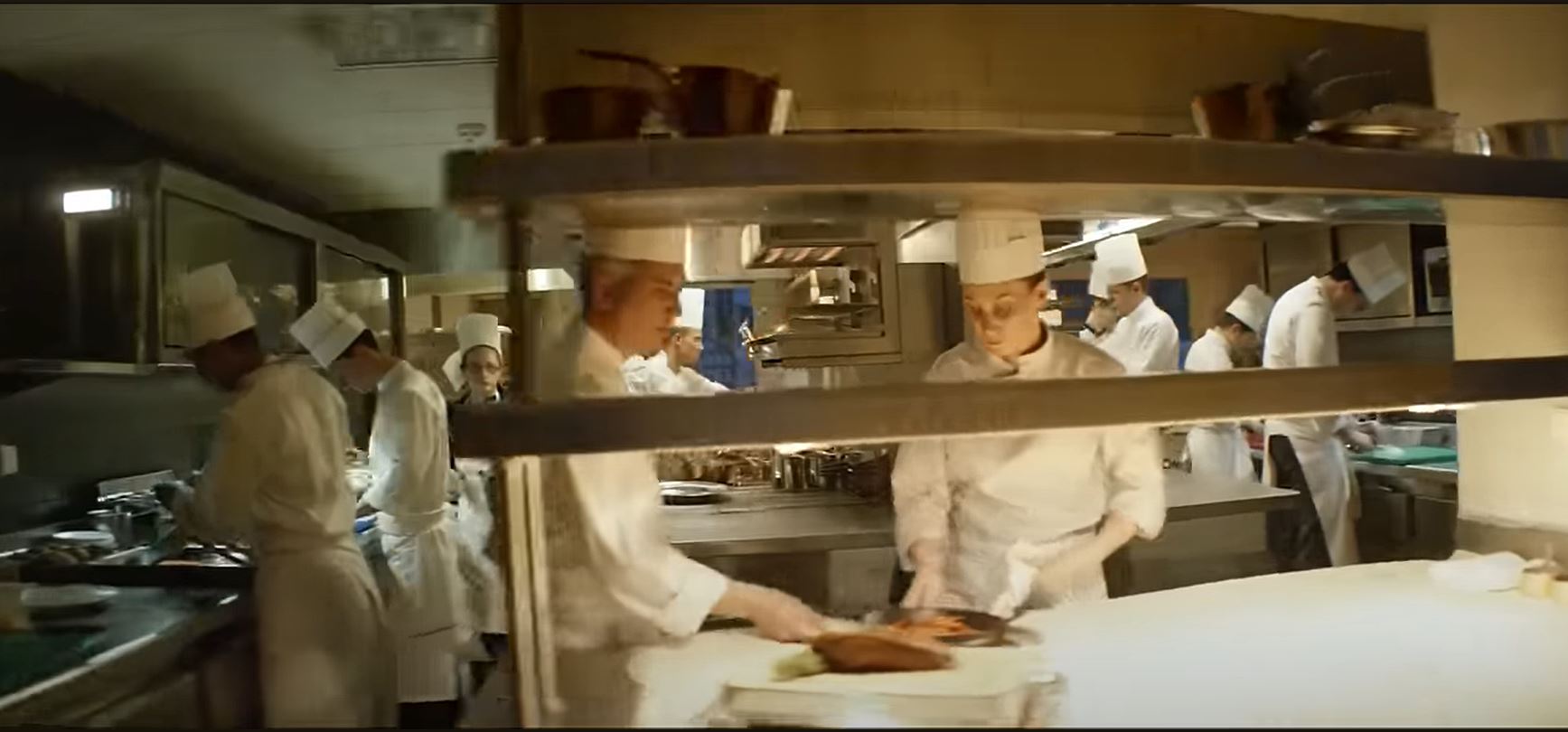


"Thau" N°3 Chef knife by Guy Savoy and Bruno Moretti for Tarrerias Bonjean
Its imposing dimensions alone explain its name! It can slice cabbages and more generally all large vegetables and even, why not, meat. Pot-bellied, it is the large model of paring knives.

Spécifications produit
(en g)
420
(en mm)
182.48
(en mm)
175.3
Technical polymer
(Par côté en °)
16
full tang
Alenox
Smooth
54.56

Deux gammes de couteaux ont vu le jour
Fruits d’une observation et d’une réflexion du duo Guy Savoy - Bruno Moretti, de technologies de haut niveau, du savoir-faire et de la capacité de production industrielle de Tarrerias Bonjean, deux gammes de couteaux ont vu le jour : les couteaux de table « Ulu et Savik » d’une part, et les couteaux de cuisine couteaux "de Thau" d’autre part.

Découvrir nos gammes de couteaux
La gamme de couteaux de table « Ulu et Savik » correspond au souhait de Guy Savoy d’établir une continuité entre la cuisine et la salle à manger, les deux univers devant se répondre l’un l’autre.
La gamme de couteaux de cuisine « de Thau » associe les qualités esthétiques aux qualités de confort au travail. Elle est destinée aux passionnés de cuisine, professionnels ou amateurs.
Kitchen knives with an "aero-aqua dynamic" shape!
The blade is deeply engraved and not just marked on the surface, unlike most knives; the fine and extremely detailed engraving is then carefully lacquered by hand. This blade, made of tempered steel, is composed of mox steel coupled with an almost inalterable PVD treatment that provides exceptional corrosion resistance. This treatment has rendered it black, like the handle, creating continuity between the two and giving the knife a sleek, aggressive, yet gentle profile… like a gleaming cetacean leaping out of the water: an "aero-aqua dynamic" shape!
Kitchen knives designed for great comfort
Designer Bruno Moretti observed chefs at work and discovered that they often held the same knife for hours, frequently resting their index finger on the back of the blade for more strength and precision, and that their hand or finger could sometimes slip on the blade, while some handles were better suited to certain hands than others. He wanted to create knives that provided great comfort for chefs. The handle's dimensions are significantly larger than standard size, offering the same comfort to all hands, allowing them to position themselves at different levels on the handle according to their shape and size. The angle of the tang (the joint at 45° between the blade and the handle) has been inverted to provide better hand protection. The back of the blade has been softened to prevent discomfort during prolonged contact with the finger.




















